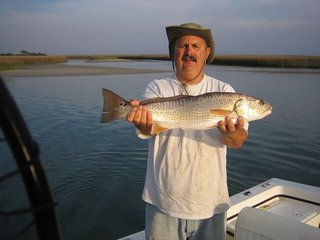Column - Dec 4, 2006
I have had a fascination for the origin of words since my ole “disc jockey” days when I was young. I spent six years in the Navy and now of course enjoy recreational boating. Below are some terms in our culture that have roots in nautical life. These are just a sample as there are over 100 of them that I know of so far.
Buccaneer
From the French boucan, or grill, for cooking dried meat. Originally referring to those who hunted and smoked meat, it expanded to include those who ate it (or stole it) as well. Predominantly in the
Cup of Joe
Navy lore: Josephus Daniels (
Deep Six
A fathom, the unit of measurement in most maritime countries for the depth of the sea, is six feet. Sailors used the term to refer to throwing something overboard and it has come to mean getting rid of something.
Filibuster
Buccaneers (see above) were known in
Footloose
The foot is the bottom of a sail, whether triangular or square, that is attached to the boom to keep it stretched. A sail that is not attached to the boom is said to be footloose and is very difficult to control as it moves with the wind. The term 'footloose and fancy free' refers to the motion of a footloose sail.
Knowing the Ropes
This is pretty obvious if you've ever seen a tall ship. It was such an important skill on sailing vessels that an honorable discharge from service was marked, at one time, with the term 'knows the ropes'. Land-side it still means a person with experience and skill.
Port and
Shows his true colors
Early warships often carried flags from many nations on board in order to elude or deceive the enemy. The rules of civilized warfare called for all ships to hoist their true national ensigns before firing a shot. Someone who finally "shows his true colors" is acting like a man-of-war which hailed another ship flying one flag, but then hoisted their own when they got in firing range.
Took the wind out of his sails
Often we use "took the wind out of his sails" to describe getting the best of an opponent in an argument. Originally it described a battle maneuver of sailing ships. One ship would pass close to its adversary and on its windward side. The ship and sails would block the wind from the second vessel, causing it to lose headway. Losing motion meant losing maneuverability and the ability to carry on a fight.
Tight Lines to all!


0 Comments:
Post a Comment
<< Home